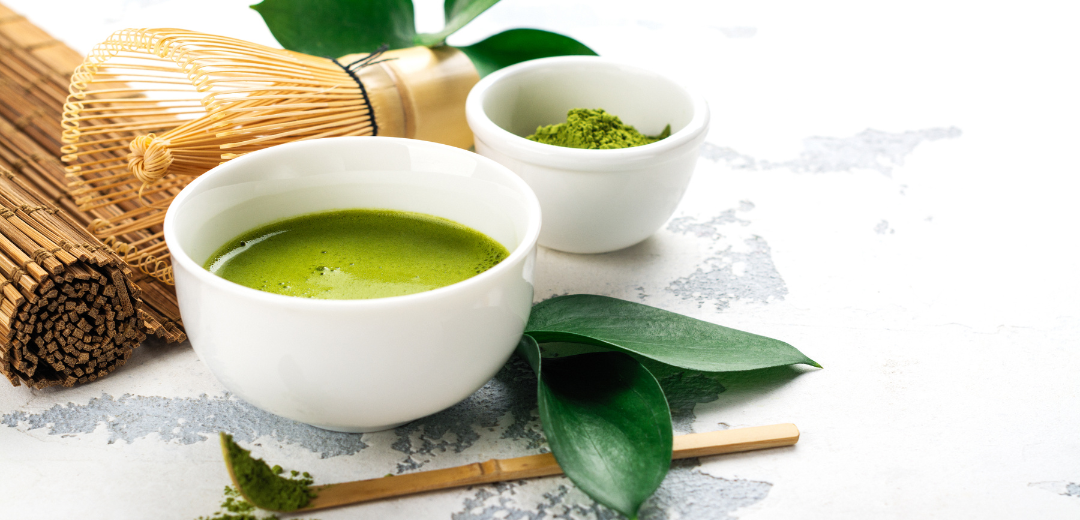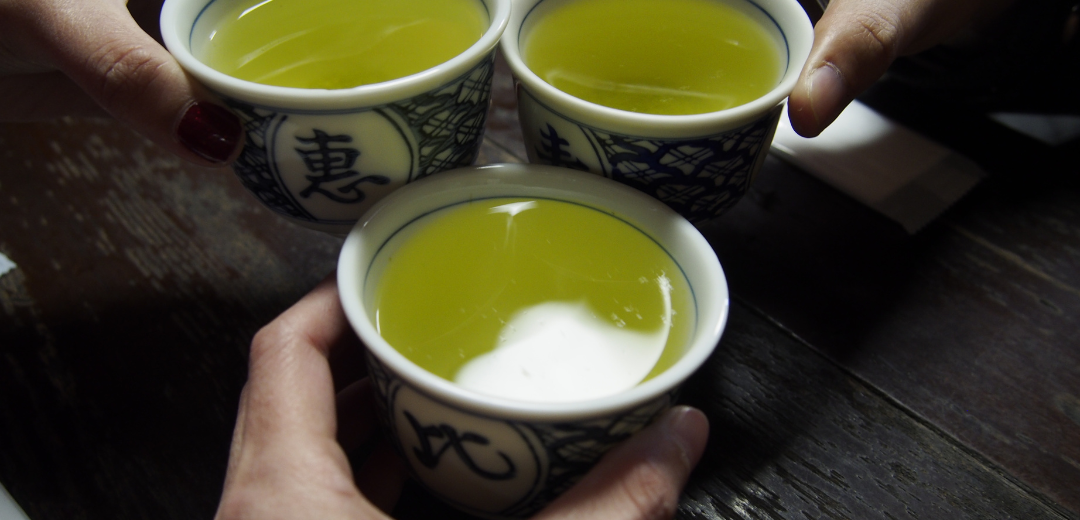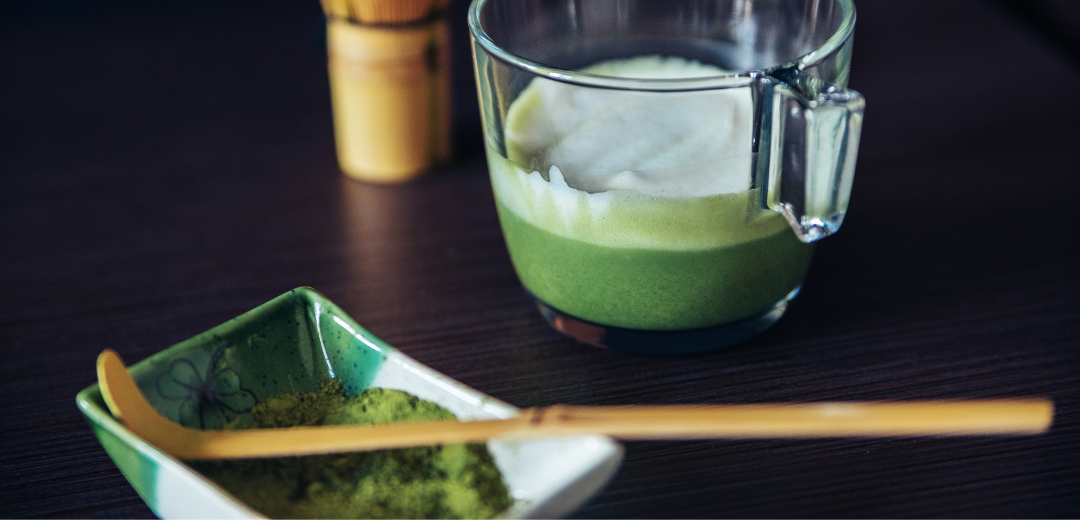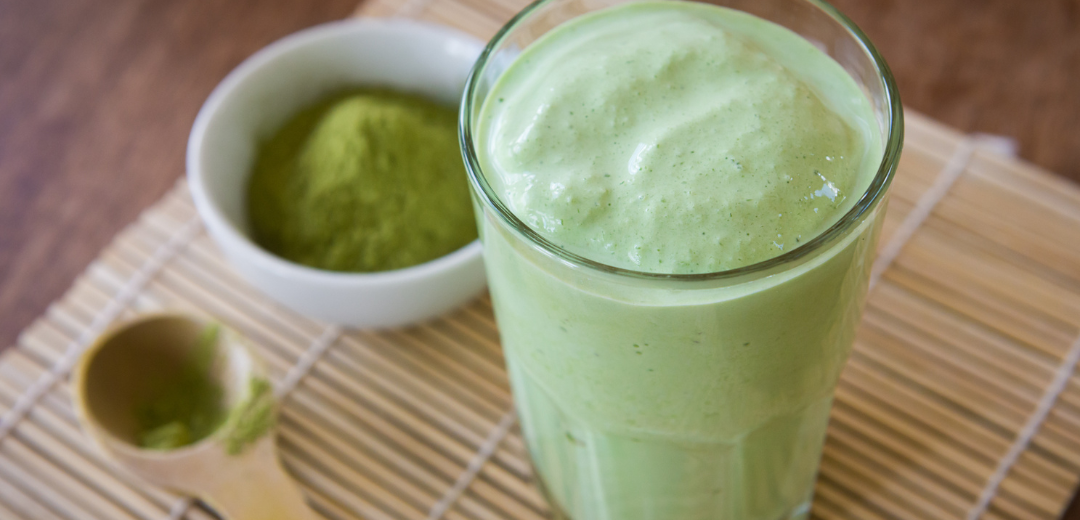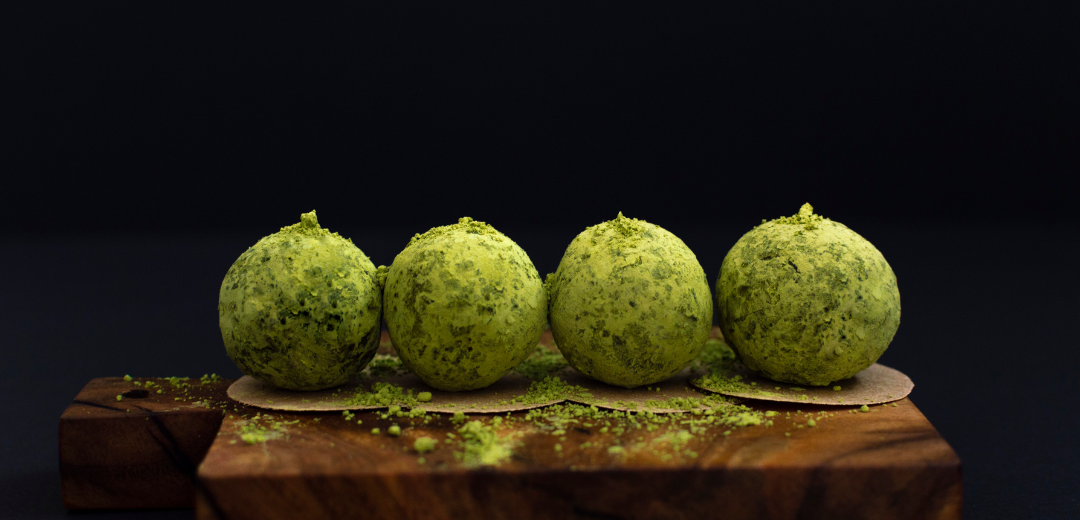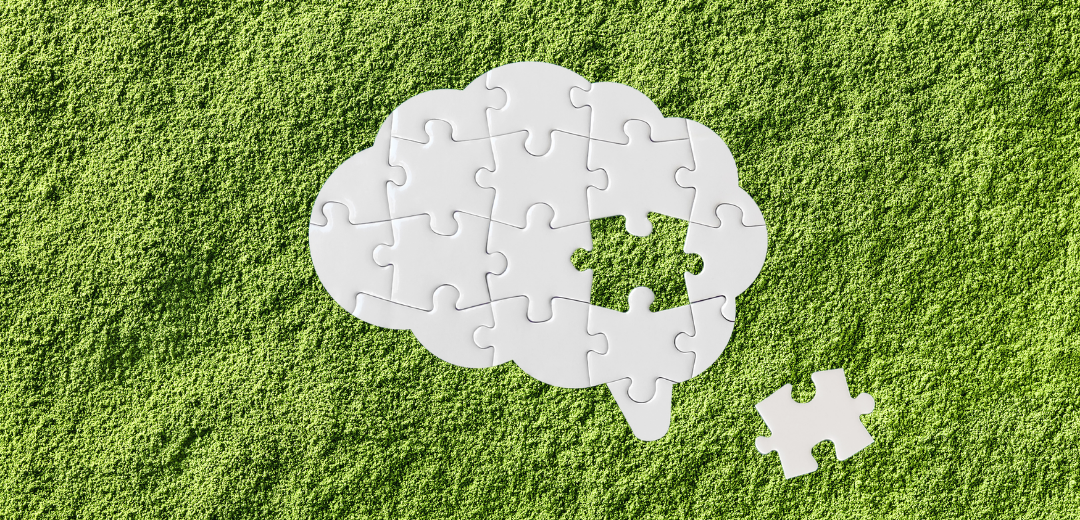
Matcha and Brain Health: How This Superfood Can Boost Focus, Memory, and Creativity
Posted on April 02 2023,

Matcha and Brain Health: How This Superfood Can Boost Focus, Memory, and Creativity
Matcha is a finely ground green tea powder that has been enjoyed in Japan for centuries. Unlike regular green tea, which is made by steeping the tea leaves in hot water and then discarding them, matcha tea is made by grinding the entire tea leaf into a powder, which is then whisked into hot water. This process allows for a higher concentration of nutrients and antioxidants, making matcha a true superfood.
In recent years, matcha has gained popularity in the West as a trendy ingredient in lattes, smoothies, and baked goods. But beyond its delicious flavor and vibrant green hue, matcha has also been shown to have a range of health benefits, particularly for brain function.
In this article, we'll explore how matcha can enhance cognitive function, the science behind its brain-boosting properties, and some delicious matcha recipes for brain health.
How Matcha Enhances Cognitive Function
The caffeine in matcha is one way that it can enhance cognitive function. Like coffee, matcha contains caffeine, which is a central nervous system stimulant that can help increase alertness and concentration. However, unlike coffee, matcha also contains an amino acid called L-theanine, which has a calming effect on the brain and can help reduce anxiety and stress.
The combination of caffeine and L-theanine in matcha is what makes it unique. While caffeine can sometimes cause anxiety, the L-theanine in matcha can help counteract these effects and promote a sense of relaxation and focus. This is because L-theanine has been shown to increase alpha brain waves, which are associated with a state of relaxed alertness.
The Science of Matcha and Brain Health
Matcha has been the subject of several studies examining its effects on brain function. One study published in the Journal of Medicinal Food found that consuming matcha improved attention and reaction time in participants compared to a placebo group. Another study found that matcha can improve cognitive function during or after stress conditions in young adults.
The high concentration of antioxidants in matcha is also thought to play a role in its brain-boosting properties. Antioxidants are compounds that protect the body from oxidative stress, which can damage cells and contribute to aging and disease. In particular, the antioxidant epigallocatechin gallate (EGCG) in matcha has been shown to have neuroprotective effects and may help prevent cognitive decline.
Subscribe to this blog's RSS feed using http://premium-health-japan.myshopify.com/blogs/news.atom
Matcha and Attention Span: Boosting Focus and Concentration
The caffeine and L-theanine in matcha can work together to improve attention span and concentration. One study concluded that the combination of L-theanine and caffeine is likely a safe and effective cognitive enhancer.
Another study published in the journal Nutritional Neuroscience found that consuming a combination of caffeine and L-theanine, like that found in matcha, improved attention and task-switching in participants performing a demanding cognitive task.
Memory Boosting Benefits of Matcha
In addition to improving attention and concentration, matcha may also have memory boosting benefits. A study published in the journal Bentham Science found that consuming green tea extract, which contains many of the same compounds as matcha, improved memory and cognitive function in healthy adults.
Another study published in the Journal of Nutrition found that drinking green tea was associated with a reduced risk of cognitive impairment in older adults. While more research is needed to determine the specific effects of matcha on memory, these studies suggest that the antioxidants and other compounds in matcha may counter memory loss.
Matcha and Creativity: Enhancing Brain Function for Increased Productivity
The caffeine and L-theanine in matcha may also enhance creativity and productivity. The caffeine in matcha can increase alertness and energy, while the L-theanine can promote relaxation and focus.
This combination can help stimulate creative thinking and increase productivity. Furthermore, the antioxidants in matcha may also help protect brain cells from damage and promote overall brain health, which can support long-term creativity and productivity.
The Role of Antioxidants in Matcha and Brain Health
Antioxidants play an important role in brain health, as they can help protect brain cells from damage and inflammation. Oxidative stress, which is caused by an imbalance between antioxidants and free radicals in the body, can contribute to aging and disease.
By consuming foods and beverages that are high in antioxidants, such as matcha green tea, you can help support brain health and reduce the risk of cognitive decline.
Matcha's Antioxidant Profile and Its Benefits for Brain Health
Matcha is packed with antioxidants, including catechins, flavonoids, and polyphenols. One particular antioxidant found in matcha is epigallocatechin gallate (EGCG), which has been shown to have neuroprotective effects and may help prevent cognitive decline.
In a study published in the Journal of Alzheimer's Disease, researchers found that EGCG can reduce beta-amyloid plaques in the brain, which are a hallmark of Alzheimer's disease. Another study found that EGCG can improve cognitive function and reduce brain inflammation in mice with Alzheimer's-like symptoms.
These studies suggest that the antioxidants in matcha, particularly EGCG, may have powerful benefits for brain health and may help protect against cognitive decline and disease.
How Matcha's L-Theanine Affects Brain Waves and Reduces Stress
L-theanine is an amino acid found in matcha that has been shown to have a calming effect on the brain. It works by increasing alpha brain waves, which are associated with a state of relaxed alertness. This can help reduce stress and anxiety, which can have a negative impact on cognitive function.
In a study published in the Journal of Functional Foods, researchers found that consuming L-theanine improved relaxation and reduced stress in participants compared to a placebo group. Another study published in the journal Biological Psychology found that L-theanine can improve attention and reaction time in response to cognitive stress.
These studies suggest that the L-theanine in matcha can have powerful benefits for reducing stress and improving cognitive function.
Neuroprotective Properties of Matcha and How They Protect the Brain from Aging and Disease
The antioxidants and other compounds in matcha have powerful neuroprotective properties, which can help protect the brain from aging and disease. In addition to its antioxidant content, matcha also contains other compounds that have been shown to have neuroprotective effects, including the amino acid theanine and the polyphenol catechin.
One study published in the journal Nutrients found that drinking green tea, which contains many of the same compounds as matcha, was associated with a reduced risk of cognitive decline in older adults. Another study published in the Journal of Neuroscience found that the polyphenol catechin can improve spatial memory and reduce cognitive decline in mice.
These studies suggest that consuming matcha, with its high concentration of antioxidants, theanine, and catechins, may help protect the brain from aging and disease and support overall brain health.
Matcha Recipes for Brain Health
Now that we've explored the science behind matcha and brain health, let's take a look at some delicious matcha recipes that can help support cognitive function.
Matcha Latte Recipe for Boosting Cognitive Function
Ingredients:
-
1 teaspoon matcha powder
-
1 cup almond milk
-
1 teaspoon honey
Instructions:
-
In a small saucepan, heat the almond milk over medium heat until it starts to steam.
-
In a separate bowl, whisk together the matcha powder and a splash of hot water until it forms a smooth paste.
-
Pour the matcha paste into the saucepan with the almond milk and whisk until fully combined.
-
Add the honey and continue to whisk until everything is fully mixed together.
-
Pour the matcha latte into a mug and enjoy.
This matcha latte recipe is a great way to start your day and give your brain a boost of energy and focus. The almond milk provides a creamy and nutty flavor, while the honey adds a touch of sweetness.
Matcha Smoothie Recipe for Improved Brain Function
Ingredients:
-
1 teaspoon matcha powder
-
1 banana
-
1 cup almond milk
-
1/2 cup frozen blueberries
-
1 tablespoon honey
Instructions:
-
Add all of the ingredients to a blender and blend until smooth.
-
Pour the matcha smoothie into a glass and enjoy.
This matcha smoothie recipe is packed with antioxidants and brain-boosting nutrients. The banana adds a creamy texture, while the blueberries provide a sweet and tart flavor. The almond milk and honey bring everything together and create a delicious and healthy drink.
Matcha Energy Balls Recipe for Mental Clarity and Focus
Ingredients:
-
1 cup rolled oats
-
1/2 cup almond butter
-
1/4 cup honey
-
1/4 cup unsweetened shredded coconut
-
1 tablespoon matcha green tea powder
Instructions:
-
In a large bowl, mix all of the ingredients together until fully combined.
-
Roll the mixture into small balls, about the size of a tablespoon.
-
Place the matcha energy balls in the refrigerator for at least 30 minutes to firm up.
-
Once the energy balls are firm, you can store them in an airtight container in the refrigerator.
These matcha energy balls are a great snack to help boost mental clarity and focus. The rolled oats provide fiber and sustained energy, while the almond butter and honey add a touch of sweetness. The unsweetened shredded coconut adds a nutty flavor and texture, and the matcha powder brings everything together and provides a powerful dose of antioxidants and brain-boosting nutrients.
Check out more matcha recipe ideas on our Matcha Recipes page.
Final Thoughts
Matcha is a superfood that can have powerful benefits for brain health. Its combination of caffeine and L-theanine can improve attention, focus, and creativity, while its high concentration of antioxidants can help protect the brain from aging and disease.
By incorporating matcha into your diet with these delicious recipes, you can support your cognitive function and overall brain health.

